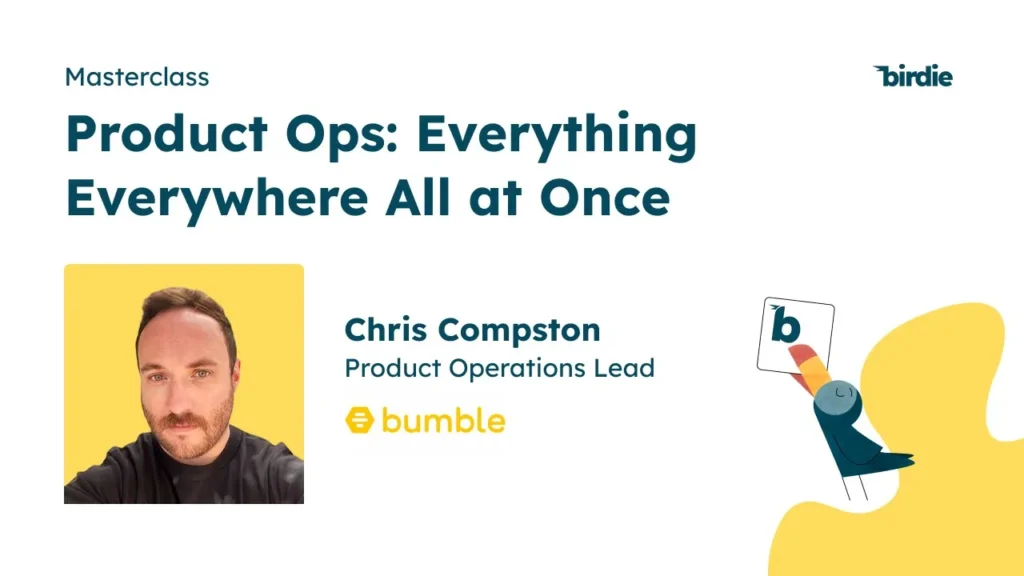
In the fast-paced world of product development, teams are constantly faced with complex and chaotic challenges. As a product professional, your goal is to help teams build better products that align with customer needs and business objectives. In this blog post, we will explore the concept of the “Product Multiverse” and discuss the principles and tools that enable product managers to navigate this intricate landscape.
Understanding Product Operations
Product operations focuses on how the product organization functions, rather than the specific goals of the product itself. It involves coordinating and enabling cross-functional teams, optimizing operational processes, and ensuring effective communication between product leadership and the rest of the organization. Product operations acts as an enabling function, multiplying the efforts of the product organization to achieve business goals.
To effectively navigate the product multiverse, it is crucial to understand the different roles involved. These roles include the therapist, the detective, and the coordinator.
The Therapist
The therapist plays a vital role in building strong relationships and understanding the unique challenges faced by individuals and teams. Like a therapist, this role involves actively listening, nudging, and guiding people to find their own solutions. By connecting challenges across the organization, the therapist gains valuable insights into higher-order problems that require attention.
The Detective
The detective role requires a deep understanding of how the product organization operates and the operational challenges it faces. As a detective, you dig deep into priority areas, bringing together the right people at the right time to drive effective change. Collaboration and co-creation are key to success, as operational challenges cannot be solved in isolation.
The Coordinator
With a broader view gained from playing the therapist and detective roles, the coordinator can identify and tackle more expansive challenges. This role involves organizing, connecting, and enabling the right people to drive operational change projects. The coordinator provides support from a relative distance, facilitating the smooth execution of initiatives.
The Product Operations Journey Begins
The product multiverse journey often starts when joining a new product organization. Initially, it can feel overwhelming, like drinking from a fire hose, as you encounter various functions, departments, and levels within the organization. Building relationships and understanding the different universes within the product multiverse becomes essential.
- Building Relationships
Building strong relationships across the organization is crucial for effective product operations. Take the time to meet and know the people you work with. Learn personal facts about them, as it fosters a sense of connection and partnership. Viewing product managers and teams as partners rather than customers promotes collaboration and mutual understanding.
- Alleviating Pressure and Concern
When introducing operational changes, it is common for team members to feel concerned about scrutiny or job threats. As a product operations professional, it is important to alleviate these concerns by emphasizing that your role is not about finding faults but enabling and amplifying the strengths of individuals and teams. Listening and nudging team members in the right direction, without interfering with their work, can help build trust and confidence.
- Creating an Operational Network
As you navigate the product multiverse, you will begin to build an operational network. This network consists of individuals who are interested in process improvement, new practices, tools, and systems. These individuals will become invaluable resources for driving operational changes and fostering continuous improvement within the organization.
Playing the Roles
Throughout your journey in the product multiverse, you will find yourself playing different roles based on the needs of the organization, teams, and projects. Sometimes you may need to be the therapist, other times the coordinator or the detective. Flexibility and adaptability are essential to tackle the multifaceted challenges of product development. Remember, the product multiverse is complex, but by mastering the different roles, you can navigate it with confidence.
In the ever-evolving landscape of product development, product operations plays a crucial role in enabling teams to build better products. By understanding the product multiverse and embracing the roles of the therapist, the detective, and the coordinator, you can effectively navigate the complexities of the product organization. Building relationships, alleviating pressure, and creating an operational network are key steps to success.
Remember: your goal is to enable and amplify the superpowers of the product organization, driving continuous improvement and fostering a culture of excellence. Together, let us embark on the journey of navigating the product multiverse and creating remarkable products.
Note: this is a free-form summary of the masterclass
Feedback Analytics Platform for a better product management strategy
Birdie helps product-centric companies better understand customers at scale to create product management strategies to increase acquisition, conversion, and retention.
Related Posts
4 Steps to Leverage Qualitative Data to Improve Customer Satisfaction and Reduce Support Cost
After multiple iterations of our own methodology to help our customers increase their customer satisfaction [...]
Leveraging Customer Feedback Analytics to Enhance Customer Experience in FinTech
Leveraging Customer Feedback Analytics to Enhance Customer Experience [...]
Navigating the Path to SaaS Success: Insights from Henrique at Bill.com
In the fast-paced world of Software as a Service (SaaS), success isn’t just about building [...]
Product Leader’s First 180 Days: Insights from Esteban’s Masterclass on Scaling Product and Teams
In the ever-evolving landscape of product development, effective leadership can make all the difference between [...]
Leveraging AI and Behavioral Economics for Community Building and User Engagement
Today it’s really important for businesses to create active online communities and get users involved. [...]
From Product Management to the C-Suite: Navigating Your Path to Leadership
The journey from a product management role to a leadership position in the C-suite is [...]
Building and Scaling Feedback Loops for Effective Product Development
In the dynamic world of product development, feedback is the lifeblood that fuels innovation and [...]
Successful Product Discovery: 4 Key Insights from a Sr. Product Manager at Miro
Successful Product Discovery [...]